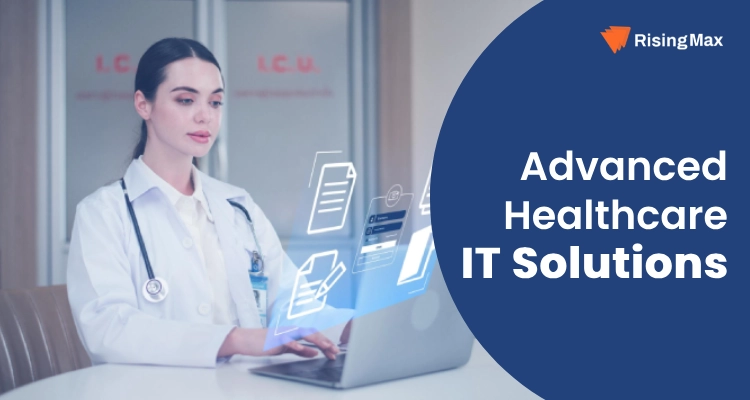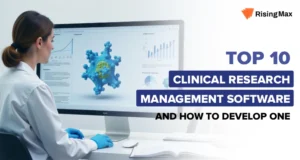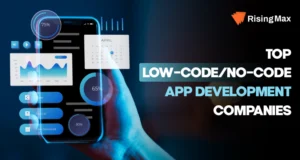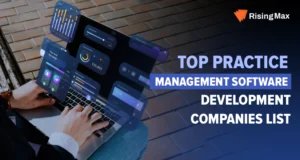With changes happening fast in healthcare today, being efficient, correct and connected is not an option; it’s vital. Traditional healthcare management techniques are not enough because patients now expect more, and medical care is getting more complex. Healthcare IT service is essential here, as it helps revolutionize the sector with digital changes and new technologies.
Thanks to better and more efficient technology, healthcare companies offer patients greater speed, better care and a personalized approach. As technology improves, it brings even greater efficiency to every part of the healthcare sector.
Understanding the Role of IT in Modern Healthcare Systems
Information technology supports every aspect of current healthcare. It supports not only writing down patient information and making claims but also essential tasks such as figuring out the diagnosis, planning the treatment and engaging with patients.
The use of healthcare IT merges databases for patients, scheduling tools, and information from labs and systems to view medical images on one platform. When all systems are integrated, the same tasks are not repeated, fewer errors happen, and coordination among medical workers is improved, helping patients improve their outcomes.
Transform Care with Smart Healthcare IT Solutions
Electronic Health Records (EHRs) and Their Impact on Care
Electronic Health Records (EHRs) are now essential in digital healthcare. Digital patient records are always current and can be quickly and safely accessed only by those who should see them.
As EHRs have been embraced, many things have become possible:
- Decision-making is improved when clinicians can see all the information about a patient’s past.
- Laboratories using information from the same data source do not repeat the same diagnostic tests.
- Coordination among doctors, pediatricians and primary health care professionals
- Better care for patients comes from quick and informed action from physicians
When healthcare providers use digital records, they improve care and boost their administrative efficiency.
Telemedicine Solutions for Remote Patient Management
Due to the pandemic, telemedicine was introduced faster, but its advantages go beyond emergency care. Video calls in telemedicine enable patients to talk to doctors from home, cutting down on the burden at hospitals and clinics.
Care is changing for patients with chronic diseases and after illnesses, thanks to remote patient monitoring tools, wrist gadgets, and health applications. These products reduce hospital readmissions, ensure patients follow their care plans, are more convenient, and are overall less expensive.
Healthcare institutions now need an IT platform for telemedicine to provide quality care to more people and better serve hard-to-reach populations.
AI and Data Analytics Driving Clinical Decision Support
AI technology and data analysis are having a major impact on hospitals and healthcare centers. AI technology allows doctors to analyze a lot of information, spot patterns, project how illnesses might grow, and help with diagnosis.
AI-based clinical decision support guides provide evidence that helps doctors decide what to do in less time. Predictive analytics lets healthcare organizations know what their patients need, supply their employees with tools, and help avoid bad events.
With data analytics, healthcare systems can respond preventively, improve their services and increase their patients’ happiness.
Improving Workflow Automation in Healthcare Facilities
One of the things holding back healthcare productivity is manual administrative work. Performing these tasks automatically frees up staff to concentrate on patients. Systems that are automated in scheduling, billing, processing claims and supply chain management work both faster and more accurately.
With Hospital Management Software Development, hospitals and clinics can automate different departmental tasks. This includes:
- Supervising patient placement in real-time
- Handling electronic prescriptions
- Scheduling the workforce and managing shifts
- Taking notes on when you need to inspect and take care of your assets
If daily tasks are done with automation, there are fewer mistakes, lower expenses, and patient care improves.
Securing Patient Data with Robust IT Infrastructure
Healthcare organizations’ data makes them especially vulnerable to cyberattacks. Strong IT systems are key to securing patient records, diagnostic reports, and billing information from data theft.
Critical security features are:
- End-to-end encryption
- Multi-factor authentication
- Save your information in a protected area and have a copy for backup.
- Observance of rules due to HIPAA and GDPR
Secure healthcare IT services help protect patients and keep an organization’s good name and finances safe.
Interoperability: Connecting Systems for Better Outcomes
Interoperability means IT systems and software applications can consistently communicate, trade, and use data. Integrating EHRs, pharmacy systems, lab reports, and imaging information into a smooth and continuous healthcare data stream.
When data between systems is shared, medical staff can more easily see a patient’s health record and handle their case more efficiently. Having one place for data prevents delays that can arise because of silos and other administrative issues.
Regulatory groups are now requesting more interoperable solutions for healthcare IT services, which is fundamental to designing new systems.
Your All-in-One IT Solution for Modern Healthcare
Challenges in Healthcare IT Adoption and Integration
Still, bringing healthcare IT into use is accompanied by specific difficulties, even though it is useful.
- It costs a lot to put the system into operation at the beginning.
- Some staff are not ready to accept change
- How difficult it is to connect the older systems
- Adhering to strict laws that protect personal data
A Mobile App Development company focused on healthcare can support healthcare organizations during change. They handle connecting systems, preparing staff, and maintaining everything after deployment.
In healthcare app development, organizations can design solutions according to their needs and easily grow them as needed.
Conclusion
Healthcare is facing a key moment right now. Due to rising expectations for excellent care and improved services, using the latest healthcare IT is essential. With technology, healthcare is becoming digital, remote treatments can happen, AI is utilized, and patient data is now more secure.
As the environment becomes more complicated and dynamic, healthcare providers must collaborate with skilled developers to ensure that Hospital Management Software Development and tailored IT solutions provide lasting results and success.
FAQs on Healthcare IT Solutions
1. What is the best thing about having healthcare IT at our fingertips?
With IT solutions for healthcare, patients receive better care, staff have an easier time managing daily tasks, company costs are lowered, data management is more accurate and following rules and laws becomes simpler.
2. How does the use of AI help improve healthcare services?
AI assists medical professionals by analyzing large amounts of data to support diagnosis, picking the best treatment plan, and forecast patient outcomes. It is helpful for clinicians’ decisions and automates many work processes.
3. Why is interoperability important for healthcare IT?
By being interoperable, several healthcare systems can share and exchange information smoothly. As a result, care is better coordinated, mistakes are less likely, and the big picture of a patient’s health is easier to see.
4. What ways can a mobile app development company aid healthcare organizations?
Healthcare experts in mobile app development can build custom solutions for involving patients, offering online medical consultations, monitoring health, and managing procedures within the healthcare system. With these tools, hospitals can provide better service, happier patients, and more efficient operations.
5. Is healthcare IT appropriate and secure according to regulations?
When health information technology is used correctly, it comes prepared with encryption, requires identifiers to authenticate staff and obeys HIPAA and GDPR to ensure patients’ data and privacy.











